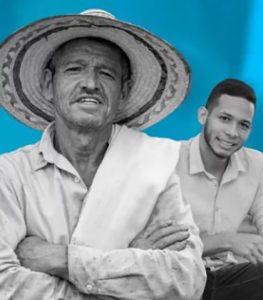Supporting migrants a ‘win, win’ – World Bank report
A new World Bank study shows that giving migrants and refugees access to government services and support has benefits for the newcomers and the established community.
A team from the bank worked with the government of Colombia to study the impact of its program to support almost two million Venezuelans fleeing economic chaos or persecution in their homeland.
 The study found significant benefits for recipients – including greater formal employment, higher incomes and consumption, and better access to state and financial services – with minimal impacts on Colombia’s labour markets.
The study found significant benefits for recipients – including greater formal employment, higher incomes and consumption, and better access to state and financial services – with minimal impacts on Colombia’s labour markets.
In 2018, the Colombian government, seeking to count the number of Venezuelan migrants without visas in the country, opened the Registro Administrativo de Migrantes Venezolanos (RAMV) registering more than 400,000 people from more than 250,000 households.
Following the census, Colombia announced a program called Permiso Especial de Permanencia (PEP), which offered generous support for Venezuelans, including legal migratory status, a work permit, and access to government services.
“With over 1.7 million Venezuelans, Colombia ranked second in the world in terms of total number of forced migrants as of 2021,” the report said.
“In just six years, more than five million people have fled the humanitarian crisis in Venezuela and relocated to other countries, making Venezuelans the second largest internationally displaced population after Syrians,” it said.
The report says the researchers expected positive results but were surprised at just how much of an impact the program had.
“The immediate impacts included a 40 per cent increase in access to state services, a 64 per cent point increase in access to financial services, and a 10 per cent point increase in labour formalisation,” the report said.
“And those who received amnesty saw their incomes increase by over 30 per cent and their consumption increase by 60 per cent, as well as improvements in measures of their physical and mental health.
“These large benefits for migrants also accrued alongside minimal impacts on labour markets for Colombians,’ it said.
The report highlighted three key lessons for policymakers dealing with migrant crises.
First, programs seeking to aid migrants and refugees benefit from using local language and signalling trust to the refugee population. Local migrant organisations also played an important role in helping bridge the gap between refugees and researchers.
Second, many migrants who were qualified but did not register for RAMV or the PEP program lacked basic information about these initiatives.
Thirdly, the PEP program was able to improve several measures of well-being among migrants by focusing on empowering and integrating them rather than just providing financial assistance.
The report stressed the benefits of helping migrants integrate more deeply into their new homes.
“The PEP program improved how forced migrants feel in Colombian society. This is important because many of these migrants may never leave, and how they feel will determine how they choose to invest in the country,” the report said.
Read more here: Out of the Shadows: The Impact of Amnesties on the Lives of Migrants (worldbank.org)












